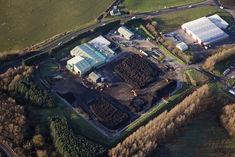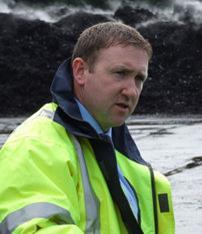

Scottish Water Waste Services is encouraging fresh produce and other food firms to recycle their food waste at its Deerdykes organics recycling facility.
Some Scottish food companies, as well as some councils in the west of Scotland, are already sending their food waste to Deerdykes at Cumbernauld, where it is composted in enclosed in-vessel composting tunnels.
But now Scottish Water is looking at capturing the energy produced by the recycling process with the installation of an anaerobic digestion plant.
Construction of the £7 million facility began at Deerdykes last month and the site will be operational in April 2010. Once completed, the facility will produce around one megawatt of green electricity annually from about 30,000 tonnes of food waste.
Planning permission has also been granted for two more plants in Renfrewshire and Ayrshire. Scottish Water Waste Services business development manager Donald MacBrayne said: “Our aim is to provide a cost-effective and environment-sound alternative for food waste. Our Deerdykes facility will represent the very latest in green thinking, producing energy from the food we would normally throw away.
“Everything from food-production waste, including food spoiled in transit, to out-of-date packaged food, can be transformed into an efficient and environment-friendly energy source.”
The process means any power produced will supply green electricity and heat to the site and any excess electricity will be offered to the National Grid or could even be exported directly to local businesses. Scottish Water is also looking into a district heating scheme, which could provide heat to local homes and businesses.
The process also produces nutrient-rich digestate, which can be used as a liquid fertiliser to improve the nutritional content of Scotland’s soil resources, further reducing the need for inorganic equivalents.
Scottish Enterprise’s Jude Maxwell said: “We know that innovative waste management is fundamental to sustainable business growth and increased competitive advantage. It has particular significance within the food and drink sector, and there are a number of opportunities for these businesses to grow and diversify further their waste management solutions.”



